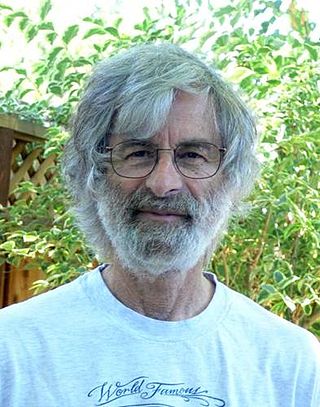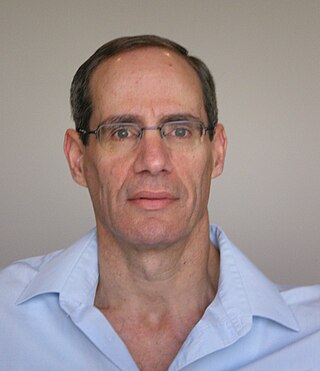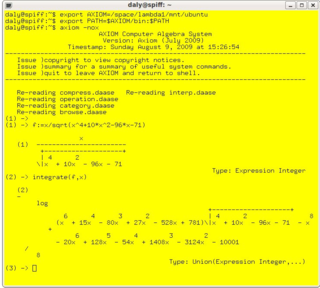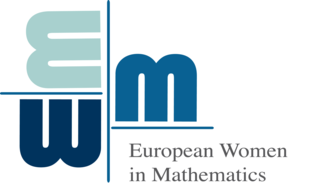The Association for Computing Machinery (ACM) is a US-based international learned society for computing. It was founded in 1947 and is the world's largest scientific and educational computing society. The ACM is a non-profit professional membership group, reporting nearly 110,000 student and professional members as of 2022. Its headquarters are in New York City.

The Canadian Unitarian Council (CUC) is a liberal religious association of Unitarian, Universalist, and Unitarian Universalist congregations in Canada. It was formed on May 14, 1961, initially to be the national organization for Canadians belonging to the Unitarian Universalist Association (UUA) which formed a day later on May 15, 1961. Between 1961 and 2002, almost all member congregations of the CUC were also members of the UUA and most services to congregations in Canada were provided by the UUA. However, in 2002, the CUC formally became a separate entity from the UUA, although the UUA continues to provide ministerial settlement services and remains the primary source for education and theological resources. Some Canadian congregations have continued to be members of both the CUC and the UUA, while most congregations are only members of the CUC.
In common mathematical parlance, a mathematical result is called folklore if it is an unpublished result with no clear originator, but which is well-circulated and believed to be true among the specialists. More specifically, folk mathematics, or mathematical folklore, is the body of theorems, definitions, proofs, facts or techniques that circulate among mathematicians by word of mouth, but have not yet appeared in print, either in books or in scholarly journals.

Leslie B. Lamport is an American computer scientist and mathematician. Lamport is best known for his seminal work in distributed systems, and as the initial developer of the document preparation system LaTeX and the author of its first manual.

In graph theory, an isomorphism of graphsG and H is a bijection between the vertex sets of G and H
A special interest group (SIG) is a community within a larger organization with a shared interest in advancing a specific area of knowledge, learning or technology where members cooperate to effect or to produce solutions within their particular field, and may communicate, meet, and organize conferences. The term was used in 1961 by the Association for Computing Machinery (ACM), an academic and professional computer society. SIG was later popularized on CompuServe, an early online service provider, where SIGs were a section of the service devoted to particular interests.

Upsilon Pi Epsilon (ΥΠΕ) is the first honor society dedicated to the computing and information disciplines. Informally known as UPE, Upsilon Pi Epsilon was founded on January 10, 1967 at Texas A&M University and has chartered over 270 chapters at college campuses around the world. With the rise of importance of information technology to many fields, other honorary societies have added computer science to their traditional scope.

The Canadian Mathematical Society is an association of professional mathematicians dedicated to the interests of mathematical research, outreach, scholarship and education in Canada. It serves the national community through the publication of academic journals, community bulletins, and the administration of mathematical competitions.
Society for Industrial and Applied Mathematics (SIAM) is a professional society dedicated to applied mathematics, computational science, and data science through research, publications, and community. SIAM is the world's largest scientific society devoted to applied mathematics, and roughly two-thirds of its membership resides within the United States. Founded in 1951, the organization began holding annual national meetings in 1954, and now hosts conferences, publishes books and scholarly journals, and engages in advocacy in issues of interest to its membership. Members include engineers, scientists, and mathematicians, both those employed in academia and those working in industry. The society supports educational institutions promoting applied mathematics.

Richard Alfred Tapia is an American mathematician and University Professor at Rice University in Houston, Texas, the university's highest academic title. In 2011, President Obama awarded Tapia the National Medal of Science. He is currently the Maxfield and Oshman Professor of Engineering; Associate Director of Graduate Studies, Office of Research and Graduate Studies; and Director of the Center for Excellence and Equity in Education at Rice University.
Franz Leopold Alt was an Austrian-born American mathematician who made major contributions to computer science in its early days. He was best known as one of the founders of the Association for Computing Machinery, and served as its president from 1950 to 1952.
Aleksandr Aleksandrovich Razborov, sometimes known as Sasha Razborov, is a Soviet and Russian mathematician and computational theorist. He is Andrew McLeish Distinguished Service Professor at the University of Chicago.
Gesellschaft für Angewandte Mathematik und Mechanik, often referred to by the acronym GAMM, is a German society for the promotion of science, founded in 1922 by the physicist Ludwig Prandtl and the mathematician Richard von Mises. The society awards the Richard von Mises prize annually. The society publishes the journal GAMM-Mitteilungen and Zeitschrift für Angewandte Mathematik und Mechanik through Wiley.

Noga Alon is an Israeli mathematician and a professor of mathematics at Princeton University noted for his contributions to combinatorics and theoretical computer science, having authored hundreds of papers.
Michael John Fischer is an American computer scientist who works in the fields of distributed computing, parallel computing, cryptography, algorithms and data structures, and computational complexity.

In mathematics and computer science, computer algebra, also called symbolic computation or algebraic computation, is a scientific area that refers to the study and development of algorithms and software for manipulating mathematical expressions and other mathematical objects. Although computer algebra could be considered a subfield of scientific computing, they are generally considered as distinct fields because scientific computing is usually based on numerical computation with approximate floating point numbers, while symbolic computation emphasizes exact computation with expressions containing variables that have no given value and are manipulated as symbols.
MathOverflow is a mathematics question-and-answer (Q&A) website, which serves as an online community of mathematicians. It allows users to ask questions, submit answers, and rate both, all while getting merit points for their activities. It is a part of the Stack Exchange Network, but distinct from math.stackexchange.com.

Rodney Graham Downey is a New Zealand and Australian mathematician and computer scientist, an emeritus professor in the School of Mathematics and Statistics at Victoria University of Wellington in New Zealand. He is known for his work in mathematical logic and computational complexity theory, and in particular for founding the field of parameterised complexity together with Michael Fellows.

Patrice Ossona de Mendez is a French mathematician specializing in topological graph theory who works as a researcher at the Centre national de la recherche scientifique in Paris. He is editor-in-chief of the European Journal of Combinatorics, a position he has held since 2009.

European Women in Mathematics (EWM) is an international association of women working in the field of mathematics in Europe. The association participates in political and strategic work to promote the role of women in mathematics and offers its members direct support. Its goals include encouraging women to study mathematics and providing visibility to women mathematicians. It is the "first and best known" of several organizations devoted to women in mathematics in Europe.











